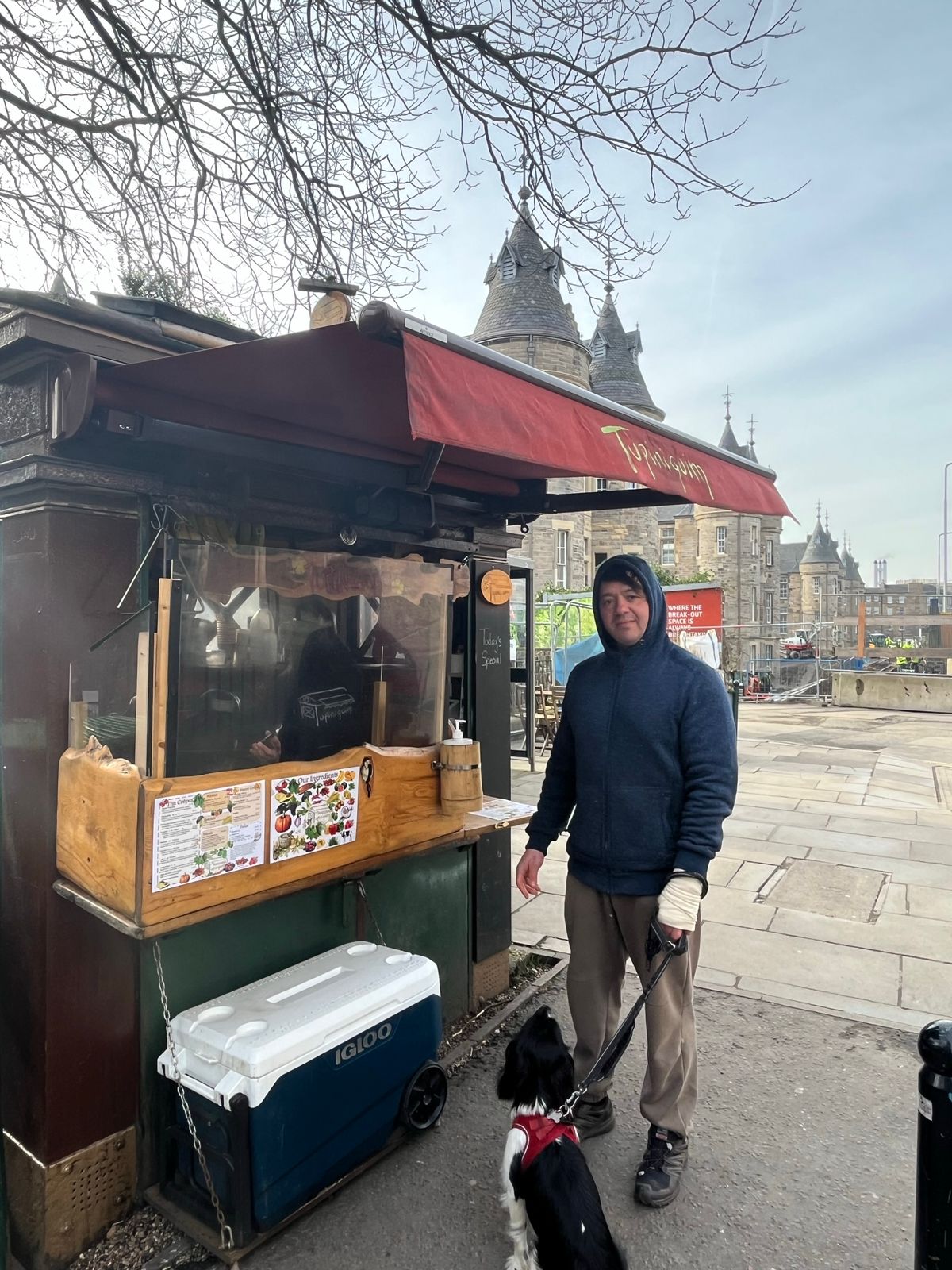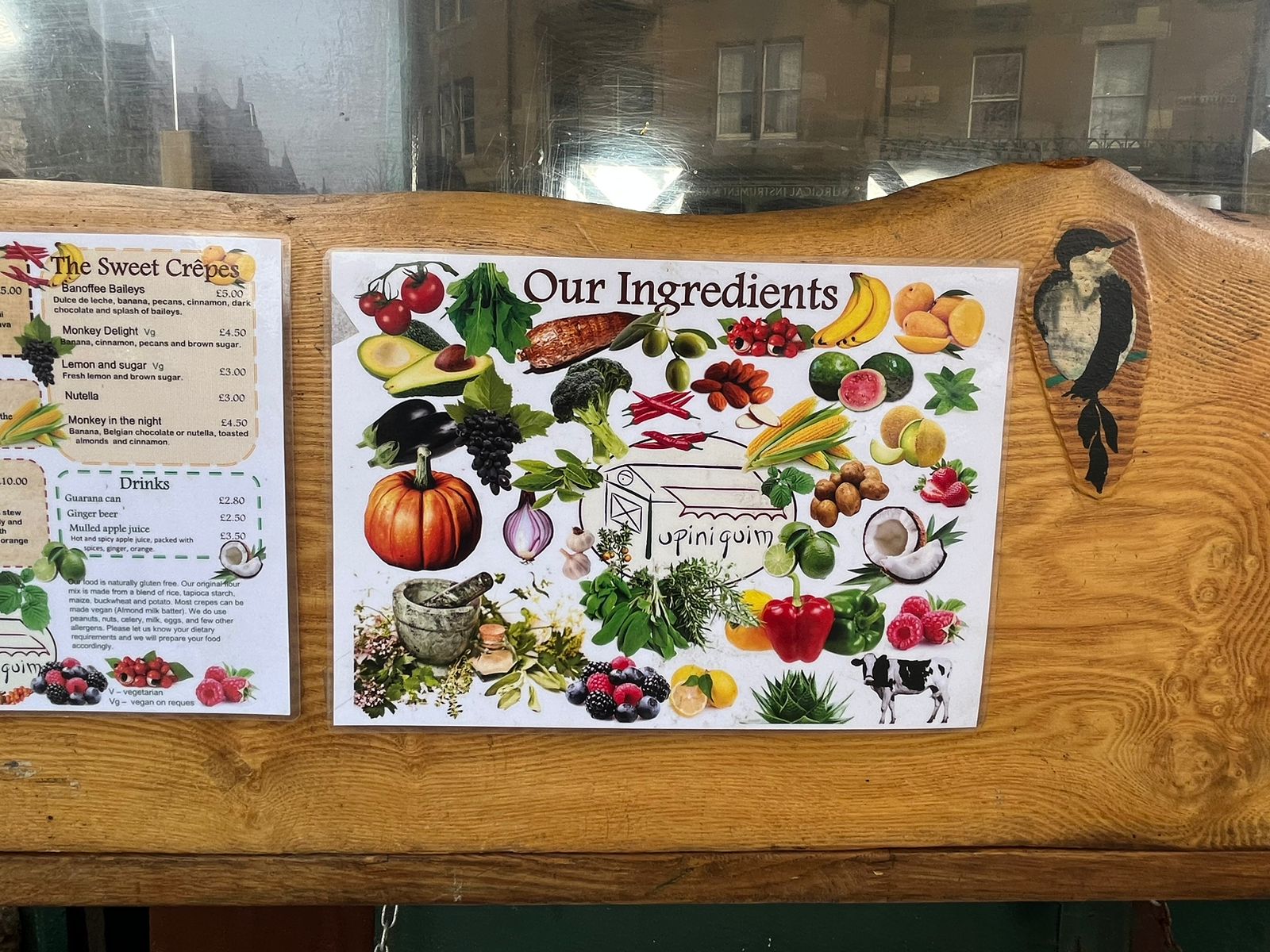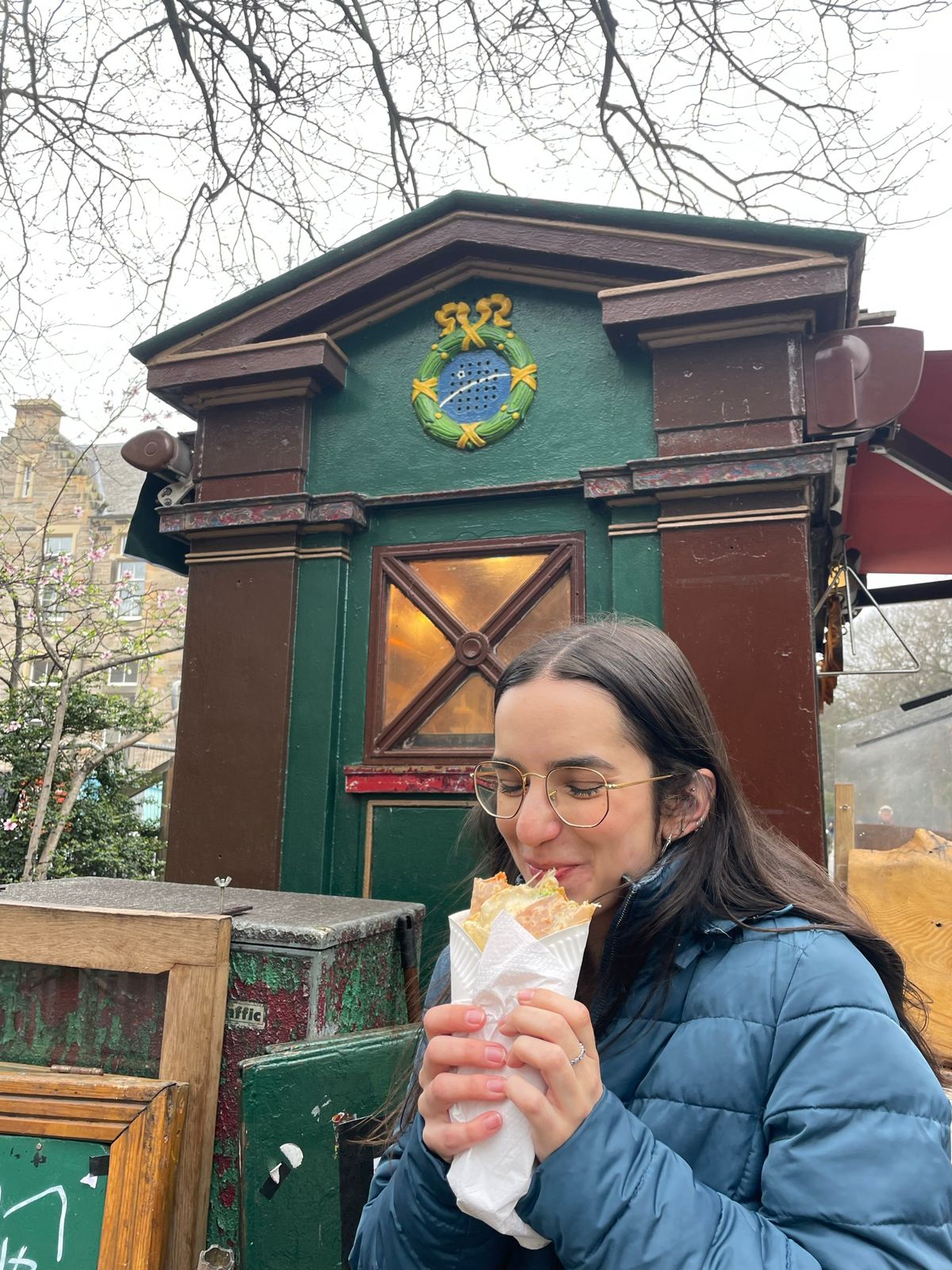While in Edinburgh to study Journalism, Ana Tagliati felt less homesick with the flavours of Tupiniquim, a Brazilian street food stand.
By Ana Tagliati
Saudade is a word that only exists in Portuguese. The word finds no equivalent in English but describes a feeling of longing, nostalgia, and the melancholy of missing something. Those who, like me, have emigrated far from home have no doubt experienced saudade, even if they don’t know the word for it.
Brazilian-born Fernando and Gardenia had been living in Edinburgh for long enough to feel that melancholic homesickness settle in. In 2010 when they saw an opportunity to rent a former police box by the Meadows, they jumped at the chance to start their own food business. The pair worked by combining traditional Brazilian foods and seasoning to create gluten-free crepes, and thus, Tupiniquim was born.
My serendipitous encounter with the street food stand began upon hearing the first notes of a samba song as I strolled lazily along the Meadows on a chilly Sunday afternoon.
It transported me back to weekends at home in Brazil, cooking lunch with my mom as the sun dappled through the windows. The familiarity of the music stopped me in my tracks so abruptly that I almost tripped over myself. I hurried over to the box to devour more of the heavenly scent, and right there, in the middle of their menu, I spotted home.



This little booth, thousands of miles away from Brazil, was serving a dish from my state of Minas Gerais called feijoada. Although I don’t eat meat anymore, seeing the traditional dish of pork and beans on the menu brought back memories of Saturday family gatherings peppered with children’s laughter and conversations about life.
The smells the little hut churns out are reminiscent of the ones in Brazilian street food markets; they come at you all at once, but each scent is identifiable – the meat, the sauce, the spices—a small piece of home in the middle of Edinburgh. The word Tupiniquim itself comes from the name of an indigenous group in Brazil but has come to more colloquially mean ‘Brazilian’ or ‘national’.
In terms of flavour, the booth offers something for everyone. As a coeliac, I mean everyone – every crepe on the menu is gluten-free. Tupiniquim is one of the few places in Edinburgh that guarantees this, and coeliacs have Fernando and Gardenia’s son to thank for. After being advised by his doctor to avoid gluten, he became the inspiration behind the stall’s gluten-free concept. This sparked the couple’s journey to make crepes inclusive for gluten-free individuals. They have developed crepes so similar to ones made with wheat flour it is virtually impossible to differentiate them. Today, nearly half of their customers are coeliacs.

A place with a history that can only be explained as “meant to be”, Tupiniquim has garnered a loyal community obsessed with its food. Living in Edinburgh for the past six months, I can safely say I am now part of it too. If you ever find yourself near Lauriston Place, be sure to stop by and try my favourite crepe, Fake Pizza, which reminds me of my mom’s homemade pizza. It tastes like dappled sunlight through the window at lunch and Saturday afternoons filled with family. It tastes like Saudade.
This article was published in Surge magazine, produced by MA Journalism students from Edinburgh Napier University.

Ana Tagliati is a Brazilian Journalism MA student at Edinburgh Napier University. She hosts and produces her weekly podcast, ‘The Brazilian Point of View’, and loves reading and writing in her spare time. Instagram: @thebrazilianpovpodcast Twitter: @anatagliati
